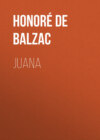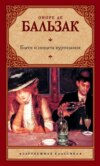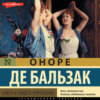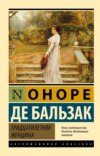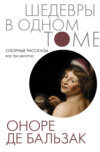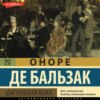Читать книгу: «Juana», страница 3
“Juana,” said Montefiore, taking her hands and kissing them with the passion that gushed in his eyes, in his gestures, in the tones of his voice, “speak to me as your husband, as yourself. I have suffered all that you have suffered. Between us two few words are needed to make us comprehend our past, but there will never be enough to express our coming happiness. Lay your hand upon my heart. Feel how it beats. Let us promise before God, who sees and hears us, to be faithful to each other throughout our lives. Here, take my ring – and give me yours.”
“Give you my ring!” she said in terror.
“Why not?” asked Montefiore, uneasy at such artlessness.
“But our holy father the Pope has blessed it; it was put upon my finger in childhood by a beautiful lady who took care of me, and who told me never to part with it.”
“Juana, you cannot love me!”
“Ah!” she said, “here it is; take it. You, are you not another myself?”
She held out the ring with a trembling hand, holding it tightly as she looked at Montefiore with a clear and penetrating eye that questioned him. That ring! all of herself was in it; but she gave it to him.
“Oh, my Juana!” said Montefiore, again pressing her in his arms. “I should be a monster indeed if I deceived you. I will love you forever.”
Juana was thoughtful. Montefiore, reflecting that in this first interview he ought to venture upon nothing that might frighten a young girl so ignorantly pure, so imprudent by virtue rather than from desire, postponed all further action to the future, relying on his beauty, of which he knew the power, and on this innocent ring-marriage, the hymen of the heart, the lightest, yet the strongest of all ceremonies. For the rest of that night, and throughout the next day, Juana’s imagination was the accomplice of her passion.
On this first evening Montefiore forced himself to be as respectful as he was tender. With that intention, in the interests of his passion and the desires with which Juana inspired him, he was caressing and unctuous in language; he launched the young creature into plans for a new existence, described to her the world under glowing colors, talked to her of household details always attractive to the mind of girls, giving her a sense of the rights and realities of love. Then, having agreed upon the hour for their future nocturnal interviews, he left her happy, but changed; the pure and pious Juana existed no longer; in the last glance she gave him, in the pretty movement by which she brought her forehead to his lips, there was already more of passion than a girl should feel. Solitude, weariness of employments contrary to her nature had brought this about. To make the daughter of the Maranas truly virtuous, she ought to have been habituated, little by little, to the world, or else to have been wholly withdrawn from it.
“The day, to-morrow, will seem very long to me,” she said, receiving his kisses on her forehead. “But stay in the salon, and speak loud, that I may hear your voice; it fills my soul.”
Montefiore, clever enough to imagine the girl’s life, was all the more satisfied with himself for restraining his desires because he saw that it would lead to his greater contentment. He returned to his room without accident.
Ten days went by without any event occurring to trouble the peace and solitude of the house. Montefiore employed his Italian cajolery on old Perez, on Dona Lagounia, on the apprentice, even on the cook, and they all liked him; but, in spite of the confidence he now inspired in them, he never asked to see Juana, or to have the door of her mysterious hiding-place opened to him. The young girl, hungry to see her lover, implored him to do so; but he always refused her from an instinct of prudence. Besides, he had used his best powers and fascinations to lull the suspicions of the old couple, and had now accustomed them to see him, a soldier, stay in bed till midday on pretence that he was ill. Thus the lovers lived only in the night-time, when the rest of the household were asleep. If Montefiore had not been one of those libertines whom the habit of gallantry enables to retain their self-possession under all circumstances, he might have been lost a dozen times during those ten days. A young lover, in the simplicity of a first love, would have committed the enchanting imprudences which are so difficult to resist. But he did resist even Juana herself, Juana pouting, Juana making her long hair a chain which she wound about his neck when caution told him he must go.
The most suspicious of guardians would however have been puzzled to detect the secret of their nightly meetings. It is to be supposed that, sure of success, the Italian marquis gave himself the ineffable pleasures of a slow seduction, step by step, leading gradually to the fire which should end the affair in a conflagration. On the eleventh day, at the dinner-table, he thought it wise to inform old Perez, under seal of secrecy, that the reason of his separation from his family was an ill-assorted marriage. This false revelation was an infamous thing in view of the nocturnal drama which was being played under that roof. Montefiore, an experienced rake, was preparing for the finale of that drama which he foresaw and enjoyed as an artist who loves his art. He expected to leave before long, and without regret, the house and his love. It would happen, he thought, in this way: Juana, after waiting for him in vain for several nights, would risk her life, perhaps, in asking Perez what had become of his guest; and Perez would reply, not aware of the importance of his answer, —
“The Marquis de Montefiore is reconciled to his family, who consent to receive his wife; he has gone to Italy to present her to them.”
And Juana? – The marquis never asked himself what would become of Juana; but he had studied her character, its nobility, candor, and strength, and he knew he might be sure of her silence.
He obtained a mission from one of the generals. Three days later, on the night preceding his intended departure, Montefiore, instead of returning to his own room after dinner, contrived to enter unseen that of Juana, to make that farewell night the longer. Juana, true Spaniard and true Italian, was enchanted with such boldness; it argued ardor! For herself she did not fear discovery. To find in the pure love of marriage the excitements of intrigue, to hide her husband behind the curtains of her bed, and say to her adopted father and mother, in case of detection: “I am the Marquise de Montefiore!” – was to an ignorant and romantic young girl, who for three years past had dreamed of love without dreaming of its dangers, delightful. The door closed on this last evening upon her folly, her happiness, like a veil, which it is useless here to raise.
It was nine o’clock; the merchant and his wife were reading their evening prayers; suddenly the noise of a carriage drawn by several horses resounded in the street; loud and hasty raps echoed from the shop where the servant hurried to open the door, and into that venerable salon rushed a woman, magnificently dressed in spite of the mud upon the wheels of her travelling-carriage, which had just crossed Italy, France, and Spain. It was, of course, the Marana, – the Marana who, in spite of her thirty-six years, was still in all the glory of her ravishing beauty; the Marana who, being at that time the mistress of a king, had left Naples, the fetes, the skies of Naples, the climax of her life of luxury, on hearing from her royal lover of the events in Spain and the siege of Tarragona.
“Tarragona! I must get to Tarragona before the town is taken!” she cried. “Ten days to reach Tarragona!”
Then without caring for crown or court, she arrived in Tarragona, furnished with an almost imperial safe-conduct; furnished too with gold which enabled her to cross France with the velocity of a rocket.
“My daughter! my daughter!” cried the Marana.
At this voice, and the abrupt invasion of their solitude, the prayer-book fell from the hands of the old couple.
“She is there,” replied the merchant, calmly, after a pause during which he recovered from the emotion caused by the abrupt entrance, and the look and voice of the mother. “She is there,” he repeated, pointing to the door of the little chamber.
“Yes, but has any harm come to her; is she still – ”
“Perfectly well,” said Dona Lagounia.
“O God! send me to hell if it so pleases thee!” cried the Marana, dropping, exhausted and half dead, into a chair.
The flush in her cheeks, due to anxiety, paled suddenly; she had strength to endure suffering, but none to bear this joy. Joy was more violent in her soul than suffering, for it contained the echoes of her pain and the agonies of its own emotion.
“But,” she said, “how have you kept her safe? Tarragona is taken.”
“Yes,” said Perez, “but since you see me living why do you ask that question? Should I not have died before harm could have come to Juana?”
At that answer, the Marana seized the calloused hand of the old man, and kissed it, wetting it with the tears that flowed from her eyes – she who never wept! those tears were all she had most precious under heaven.
“My good Perez!” she said at last. “But have you had no soldiers quartered in your house?”
“Only one,” replied the Spaniard. “Fortunately for us the most loyal of men; a Spaniard by birth, but now an Italian who hates Bonaparte; a married man. He is ill, and gets up late and goes to bed early.”
“An Italian! What is his name?”
“Montefiore.”
“Can it be the Marquis de Montefiore – ”
“Yes, Senora, he himself.”
“Has he seen Juana?”
“No,” said Dona Lagounia.
“You are mistaken, wife,” said Perez. “The marquis must have seen her for a moment, a short moment, it is true; but I think he looked at her that evening she came in here during supper.”
“Ah, let me see my daughter!”
“Nothing easier,” said Perez; “she is now asleep. If she has left the key in the lock we must waken her.”
As he rose to take the duplicate key of Juana’s door his eyes fell by chance on the circular gleam of light upon the black wall of the inner courtyard. Within that circle he saw the shadow of a group such as Canova alone has attempted to render. The Spaniard turned back.
“I do not know,” he said to the Marana, “where to find the key.”
“You are very pale,” she said.
“And I will show you why,” he cried, seizing his dagger and rapping its hilt violently on Juana’s door as he shouted, —
“Open! open! open! Juana!”
Juana did not open, for she needed time to conceal Montefiore. She knew nothing of what was passing in the salon; the double portieres of thick tapestry deadened all sounds.
“Madame, I lied to you in saying I could not find the key. Here it is,” added Perez, taking it from a sideboard. “But it is useless. Juana’s key is in the lock; her door is barricaded. We have been deceived, my wife!” he added, turning to Dona Lagounia. “There is a man in Juana’s room.”
“Impossible! By my eternal salvation I say it is impossible!” said his wife.
“Do not swear, Dona Lagounia. Our honor is dead, and this woman – ” He pointed to the Marana, who had risen and was standing motionless, blasted by his words, “this woman has the right to despise us. She saved our life, our fortune, and our honor, and we have saved nothing for her but her money – Juana!” he cried again, “open, or I will burst in your door.”
His voice, rising in violence, echoed through the garrets in the roof. He was cold and calm. The life of Montefiore was in his hands; he would wash away his remorse in the blood of that Italian.
“Out, out, out! out, all of you!” cried the Marana, springing like a tigress on the dagger, which she wrenched from the hand of the astonished Perez. “Out, Perez,” she continued more calmly, “out, you and your wife and servants! There will be murder here. You might be shot by the French. Have nothing to do with this; it is my affair, mine only. Between my daughter and me there is none but God. As for the man, he belongs to me. The whole earth could not tear him from my grasp. Go, go! I forgive you. I see plainly that the girl is a Marana. You, your religion, your virtue, were too weak to fight against my blood.”
She gave a dreadful sigh, turning her dry eyes on them. She had lost all, but she knew how to suffer, – a true courtesan.
The door opened. The Marana forgot all else, and Perez, making a sign to his wife, remained at his post. With his old invincible Spanish honor he was determined to share the vengeance of the betrayed mother. Juana, all in white, and softly lighted by the wax candles, was standing calmly in the centre of her chamber.
“What do you want with me?” she said.
The Marana could not repress a passing shudder.
“Perez,” she asked, “has this room another issue?”
Perez made a negative gesture; confiding in that gesture, the mother entered the room.
“Juana,” she said, “I am your mother, your judge; you have placed yourself in the only situation in which I could reveal myself to you. You have come down to me, you, whom I thought in heaven. Ah! you have fallen low indeed. You have a lover in this room.”
“Madame, there is and can be no one but my husband,” answered the girl. “I am the Marquise de Montefiore.”
“Then there are two,” said Perez, in a grave voice. “He told me he was married.”
“Montefiore, my love!” cried the girl, tearing aside the curtain and revealing the officer. “Come! they are slandering you.”
The Italian appeared, pale and speechless; he saw the dagger in the Marana’s hand, and he knew her well. With one bound he sprang from the room, crying out in a thundering voice, —
“Help! help! they are murdering a Frenchman. Soldiers of the 6th of the line, rush for Captain Diard! Help, help!”
Perez had gripped the man and was trying to gag him with his large hand, but the Marana stopped him, saying, —
“Bind him fast, but let him shout. Open the doors, leave them open, and go, go, as I told you; go, all of you. – As for you,” she said, addressing Montefiore, “shout, call for help if you choose; by the time your soldiers get here this blade will be in your heart. Are you married? Answer.”
Montefiore, who had fallen on the threshold of the door, scarcely a step from Juana, saw nothing but the blade of the dagger, the gleam of which blinded him.
“Has he deceived me?” said Juana, slowly. “He told me he was free.”
“He told me that he was married,” repeated Perez, in his solemn voice.
“Holy Virgin!” murmured Dona Lagounia.
“Answer, soul of corruption,” said the Marana, in a low voice, bending to the ear of the marquis.
“Your daughter – ” began Montefiore.
“The daughter that was mine is dead or dying,” interrupted the Marana. “I have no daughter; do not utter that word. Answer, are you married?”
“No, madame,” said Montefiore, at last, striving to gain time, “I desire to marry your daughter.”
“My noble Montefiore!” said Juana, drawing a deep breath.
“Then why did you attempt to fly and cry for help?” asked Perez.
Terrible, revealing light!
Juana said nothing, but she wrung her hands and went to her arm-chair and sat down.
At that moment a tumult rose in the street which was plainly heard in the silence of the room. A soldier of the 6th, hearing Montefiore’s cry for help, had summoned Diard. The quartermaster, who was fortunately in his bivouac, came, accompanied by friends.
“Why did I fly?” said Montefiore, hearing the voice of his friend. “Because I told you the truth; I am married – Diard! Diard!” he shouted in a piercing voice.
But, at a word from Perez, the apprentice closed and bolted the doors, so that the soldiers were delayed by battering them in. Before they could enter, the Marana had time to strike her dagger into the guilty man; but anger hindered her aim, the blade slipped upon the Italian’s epaulet, though she struck her blow with such force that he fell at the very feet of Juana, who took no notice of him. The Marana sprang upon him, and this time, resolved not to miss her prey, she caught him by the throat.
“I am free and I will marry her! I swear it, by God, by my mother, by all there is most sacred in the world; I am a bachelor; I will marry her, on my honor!”
And he bit the arm of the courtesan.
“Mother,” said Juana, “kill him. He is so base that I will not have him for my husband, were he ten times as beautiful.”
“Ah! I recognize my daughter!” cried the mother.
“What is all this?” demanded the quartermaster, entering the room.
“They are murdering me,” cried Montefiore, “on account of this girl; she says I am her lover. She inveigled me into a trap, and they are forcing me to marry her – ”
“And you reject her?” cried Diard, struck with the splendid beauty which contempt, hatred, and indignation had given to the girl, already so beautiful. “Then you are hard to please. If she wants a husband I am ready to marry her. Put up your weapons; there is no trouble here.”
The Marana pulled the Italian to the side of her daughter’s bed and said to him, in a low voice, —
“If I spare you, give thanks for the rest of your life; but, remember this, if your tongue ever injures my daughter you will see me again. Go! – How much ‘dot’ do you give her?” she continued, going up to Perez.
“She has two hundred thousand gold piastres,” replied the Spaniard.
“And that is not all, monsieur,” said the Marana, turning to Diard. “Who are you? – Go!” she repeated to Montefiore.
The marquis, hearing this statement of gold piastres, came forward once more, saying, —
“I am really free – ”
A glance from Juana silenced him.
“You are really free to go,” she said.
And he went immediately.
“Alas! monsieur,” said the girl, turning to Diard, “I thank you with admiration. But my husband is in heaven. To-morrow I shall enter a convent – ”
“Juana, my Juana, hush!” cried the mother, clasping her in her arms. Then she whispered in the girl’s ear. “You must have another husband.”
Juana turned pale. She freed herself from her mother and sat down once more in her arm-chair.
“Who are you, monsieur?” repeated the Marana, addressing Diard.
“Madame, I am at present only the quartermaster of the 6th of the line. But for such a wife I have the heart to make myself a marshal of France. My name is Pierre-Francois Diard. My father was provost of merchants. I am not – ”
“But, at least, you are an honest man, are you not?” cried the Marana, interrupting him. “If you please the Signorina Juana di Mancini, you can marry her and be happy together. – Juana,” she continued in a grave tone, “in becoming the wife of a brave and worthy man remember that you will also be a mother. I have sworn that you shall kiss your children without a blush upon your face” (her voice faltered slightly). “I have sworn that you shall live a virtuous life; expect, therefore, many troubles. But, whatever happens, continue pure, and be faithful to your husband. Sacrifice all things to him, for he will be the father of your children – the father of your children! If you take a lover, I, your mother, will stand between you and him. Do you see that dagger? It is in your ‘dot,’” she continued, throwing the weapon on Juana’s bed. “I leave it there as the guarantee of your honor so long as my eyes are open and my arm free. Farewell,” she said, restraining her tears. “God grant that we may never meet again.”
At that idea, her tears began to flow.
“Poor child!” she added, “you have been happier than you knew in this dull home. – Do not allow her to regret it,” she said, turning to Diard.
The foregoing rapid narrative is not the principal subject of this Study, for the understanding of which it was necessary to explain how it happened that the quartermaster Diard married Juana di Mancini, that Montefiore and Diard were intimately known to each other, and to show plainly what blood and what passions were in Madame Diard.

